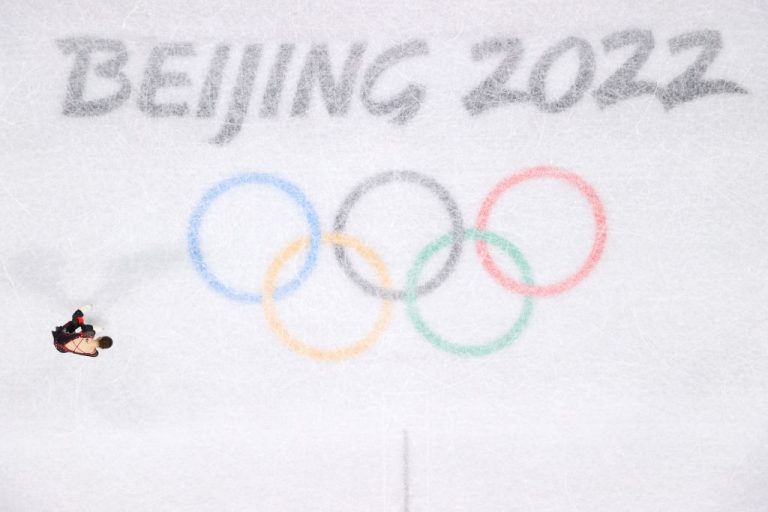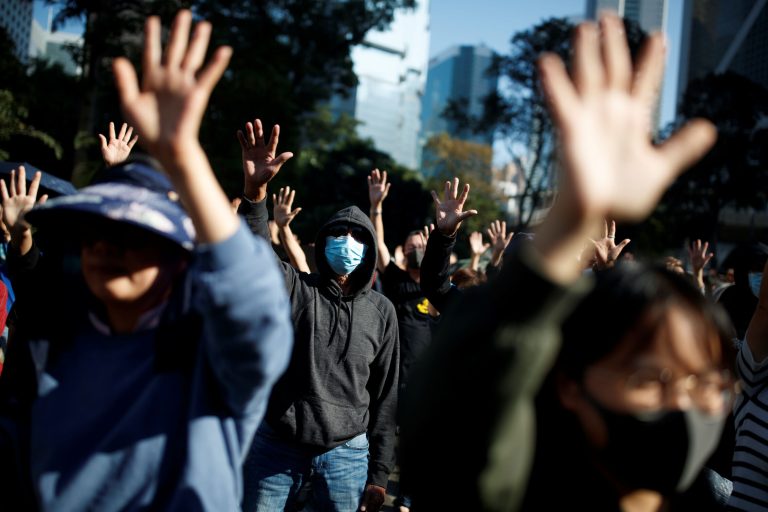The Beijing Winter Olympics was mired by a myriad of controversies and scandals involving both athletes and VIPs during the 17-day event.
Behind the red curtain of festive propaganda, the latest Olympics in the heart of communist China has cemented itself as one of the Games’ most infamous outings.
COVID-19
Before the Olympics began, the Omicron variant was first discovered in Beijing on Jan. 15. It spread even after lockdowns in other Chinese cities were required as part of China’s “zero COVID” policy.
Despite the potential risks posed by the Omicron variant, the Chinese Communist Party (CCP) was not going to let it interfere with China hosting the Olympics.
Beijing relied on a “closed loop” to curb the spread of COVID-19. Stadiums were half-empty, depriving competitors of the typically jovial, inspiring atmosphere of cheering spectators.
Success
You are now signed up for our newsletter
Success
Check your email to complete sign up
Journalists were unable to properly navigate and cover areas and news throughout the event, especially relating to the CCP’s human rights abuses of ethnic minorities.
READ MORE:
Omicron Arrives in Beijing Three Weeks Prior to Olympics
Athletes at risk
As passionate and determined as athletes usually are, the Beijing Olympics was a depressing situation for them, forcing them to compete at their best in stressful, deplorable conditions.
READ MORE:
- Foreign Athletes at Beijing Olympics Not Getting the Food Needed to Compete Properly: Reports
- Figure Skater Kamila Valieva at Center of Doping Scandal Breaks Down in Tears as Olympic Journey Ends
- American-Born Chinese Skier Eileen Gu Defends Communist China, Gets Censored
Athletes who tested positive with COVID-19 reported negatively of the poor conditions of Beijing’s quarantine hotels. Issues included a lack of good food, internet access, and especially training equipment.
Polish speed skater Natalia Maliszewska and Russian biathlon athlete Valeria Vasnetsova suffered from a lack of proper care during their isolations. The latter proved that even China’s geopolitical partners were not spared mistreatment.
“I cry everyday,” Vasnetsova wrote on Instagram. “My stomach hurts, I’m very pale, and I have huge black circles around my eyes. I want all this to end.”
German team chief Dirk Schimmelpfennig told reporters on Feb. 5 that the living conditions were “unacceptable, so we have to find a way to change this.”
Russian skater Kamila Valieva, 15, tested positive for three banned substances after she had a demoralizing fourth-place finish.
Eileen Gu, an American-born skier who competed for China, became a star in the communist country. However, she was attacked on social media by Chinese netizens for her elitist posts, which were quickly censored by her new homeland. In the West, she was nicknamed “Genocide Barbie,” showing Westerners’ distaste for her new allegiance to the world’s worst human rights abuser.
Political and social strife
Before it began, the Winter Olympics had already earned itself the moniker “Genocide Games” for its well-documented genocide against ethnic minorities in the mainland, especially in Xinjiang.
The suffering of the Uyghurs sparked the ire of the international community, even as the CCP clamped down on media coverage about the accusations during the Olympics.
In an overt display of propaganda, Uyghur skier Dinigeer Yilamujiang was one of the final torchbearers at the opening ceremony. The CCP’s desperate attempt to whitewash its ongoing genocide against Uyghurs was met with heavy criticism.
After all of the problems and controversy, International Olympic Committee (IOC) President Thomas Bach sang high praises for Beijing’s “Genocide Games.” Now, many people question his leadership and moral compass.
Bach claimed that he was “disturbed” by the Russian doping scandal, but, again, many questions his sincerity. He also led the IOC during Russia’s previous doping scandal in the 2014 Olympics.
In an attempt to glorify the Beijing Olympics, organizers filled events with artificial snow, since the region doesn’t receive much natural snow. Environmental experts criticized the CCP, citing the huge consumption of water and electricity to pull off the stunt.
READ MORE:














